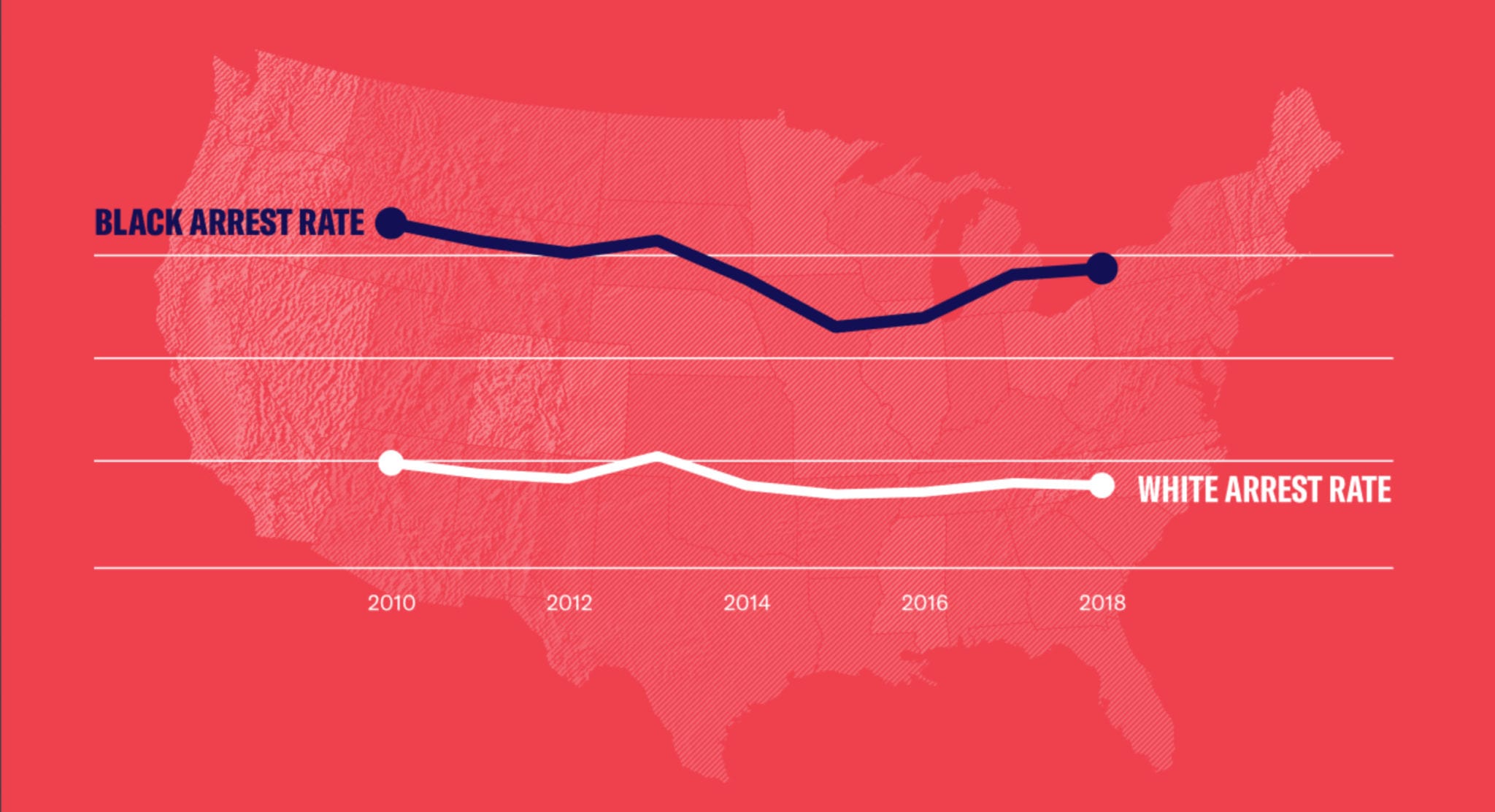The U.S. House passed a landmark bill on Friday that effectively decriminalizes cannabis at the federal level, setting the stage for a legislative showdown next year in Washington D.C.
The MORE ACT, which passed by a vote of 228-164 with bi-partisan support, would remove cannabis from the federal Controlled Substances Act and erase weed-related criminal records. While its passage marks a monumental step in U.S. cannabis policy reform, the bill faces an uphill battle in getting through the U.S. Senate.
Senate majority leader and Republican Mitch McConnell has stated publicly that he has no intention of passing a major cannabis bill any time soon.
That puts more significance on the Georgia Senate runoff in January, because it could lead to Democrats taking control of the Upper Chamber next year and greater chance for the MORE Act to become law.
Currently, Republicans hold 50 senate seats and Democrats 48. But if Georgia Democrats win the two remaining seats, Vice President-elect Kamala Harris would break a tie situation. The runoffs were scheduled for next year after none of the candidates reached the necessary minimum vote of 50 per cent to win the race.
While Georgia has been traditionally a Republican stronghold for the Senate, Democrats remain hopeful based on the results of the presidential election. President-elect Joe Biden was the first Democrat to win Georgia since Bill Clinton was elected in 1992.
Both Georgia Senate runoff elections are considered toss-ups, according to the latest polling data gathered by Real Clear Politics.
Read more: Why the Georgia Senate runoff could reshape North America’s cannabis sector
I'm so proud that the MORE Act passed the House by a bipartisan vote of 228 to 164. I introduced this bill to provide restorative justice, modernize America's cannabis laws, and deliver meaningful investments to America's communities & small businesses.
Now, let's make it law. pic.twitter.com/sByrmUF5ZQ
— Rep. Nadler (@RepJerryNadler) December 4, 2020
But for activists the vote reflects a significant year for cannabis law reform in the U.S. and around the world. Weed will soon be legal in 15 states for adult use and in 36 states for medical use, including Red states like Mississippi and South Dakota. Internationally, the United Nations voted earlier this week to remove cannabis from a list that categorized it as one of the most dangerous drugs.
Read more: Are these countries next in line to legalize medical cannabis?
“This is an historic day for marijuana policy in the United States,” NORML executive director Erik Altieri said in a statement. “This vote marks the first time a full chamber of Congress voted to end this prohibition.”
Altieri says the MORE Act has a better chance of becoming law in 2021 with a Biden administration in office, but warned about a tough road ahead due to its opposition on Capitol Hill.
MORE Act passing would be a huge boom for industry
The MORE Act becoming law would also be seen as a big win for the industry. That’s because it would also eliminate the existing conflict between state and federal cannabis laws it would provide states with the authority to establish their own cannabis laws.
“The passing of the MORE Act will open up the cannabis industry in a big way, resulting in a huge boom in the American investment market,” Glass House Group CEO Kyle Kazan said in a statement. “While it still needs to pass the Senate, it is a great first step toward cannabis decriminalization.
If the bill passed it would allow cannabis companies deduct expenses on their federal tax returns, increase their access to basic banking services, and apply federal safety standards for the contents of their products.

Legal cannabis sales surge in states with regulated markets amid the pandemic, providing jobs and tax revenues for governments. Photo via Cova Software
Kazan, who runs one of the largest private cultivation companies in California, says if the Senate does not pass the bill it will be going against 68 per cent of Americans who now support legalization, according to a recent Gallup poll. He also warns that American companies will continue to be forced to go to Canadian banks to gain access to public markets.
Cannabis legalization is considered even more important during the pandemic since it could help all levels of government generate thousands of jobs and billions in new tax revenues.
“This groundbreaking legislation will generate and encourage unprecedented economic stimulus for an America that wants to move past the unconstitutional injustices of its past,” said Jushi Holdings president Erich Mauff. “Cohesive and meaningful federal oversight is a critical next step for this country, as we work with vigor and passion to reimagine an industry.”
‘Falls short of a perfect bill’
But the main objective of the MORE Act is to help restore justice to those who have been victimized by prohibition — mainly people of colour.
There were over 660,000 weed-related arrests in the U.S. in 2018, and ACLU reported in April that Black people are almost four times more likely to be arrested for possession than white people, despite both groups using pot at the same rate.
The MORE Act would expunge federal convictions for weed offenses and set up a 5 per cent cannabis tax to support communities most affected by the war on drugs.

Image via Tale of Two Countries: Racially Targeted Arrests in the Era of Marijuana Reform published by the American Civil Liberties Union on April 20, 2020.
However, some in the cannabis reform movement have criticized the bill for not going far enough to to ensure restorative justice is granted.
“While the MORE Act includes many important steps toward federal cannabis reform, it falls short of a perfect bill,” said Steven Hawkins, executive director at the Marijuana Policy Project.
The MPP specifically called out an amendment added in the final days before the bill passed that would give the federal government power to prevent Americans who have been charged with cannabis-related felonies from working in the industry.
“Not only does this requirement violate both the spirit and intent of this historic legislation, it is strongly at odds with many of the provisions contained in MORE itself, including the expungement of records and efforts to remove barriers from past convictions,” Hawkins added.
The full text of the legislation (H.R.3884) is available here.
Top image of the Inauguration of President Barack H. Obama, 44th president of the United States by Architect of the Capitol via US Capitol Flickr
jared@mugglehead.com
@JaredGnam














